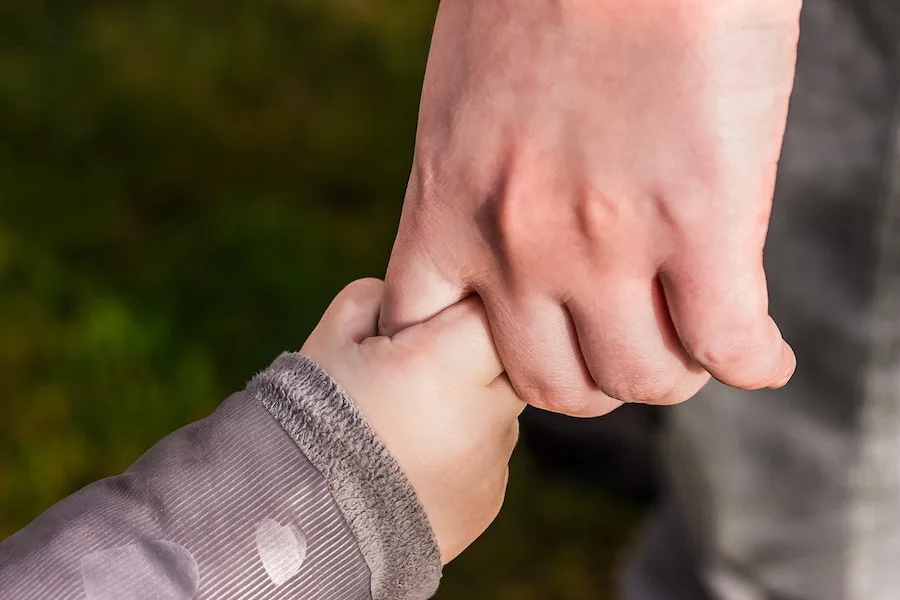When a relative is struggling with addiction, everyone in the family can be affected; this is why we say addiction is a family disease.
The person addicted to drugs often develops financial, emotional, or psychological problems and becomes unreliable, causing others to have to fill in for and perform their responsibilities. This increases the stress of all people involved and can cause resentment and distrust.
Family Members Take on New Roles
In families that have problems with drug addiction, relatives often take on the following roles:
The Enabler. The enabler is often the addicted person’s spouse, partner, or parent, who compensates for their absence by filling in for their responsibilities. They might do things like pay their bills and address the needs of their children. The enabler(s) might perform these tasks at the expense of their own needs. Enablers might also see the addiction as a minor or temporary problem in the family and will make excuses for the person they are covering for. In most cases, the Enabler becomes co-dependent, meaning that they develop a dysfunctional relationship with the addict, excessively relying on them for approval and losing their own identity in the process. To learn more about setting personal boundaries, click here ( /dream-journal/204-boundaries )
The Family Hero. The family hero is often the oldest child, who takes on increased responsibilities that exceed what is appropriate for their age level. Like the enabler, they might be making sure the younger kids get fed, go to school, and do their homework. They work hard and appear successful but often feel incompetent and imagine that things are on the brink of failure.
The Scapegoat. The scapegoat of the family is typically a child that seems to receive a disproportionate amount of negative attention for their mistakes. The scapegoat serves as a distraction for the real problem of addiction. As a result, this person becomes resentful and misbehaves to protest their chaotic family life. This person might be repetitively in trouble at school or with the law and feel rejected by their family.
The Lost Child. This child isolates themselves from the rest of the family and engages in fantasy to distract them from their chaotic family life. This child appears content but often feels alone and angry.
The Mascot. The mascot is viewed as “the family clown” who tries to relieve pressure by being a source of joy/humor. This person is good at hiding their hurt.
The Addict. The person addicted to alcohol or other substances could be any member of the family. They do not always realize that they have a drug problem but often do realize that they are causing others to fill in and do extra work for them and they feel guilty about that. Without friends or family members pointing out the problem, pressing for change, and potentially giving ultimatums, they are not likely to change.
Family Consequences
The roles that family members take on during addiction often become permanent behavior patterns. For example, the scapegoat might continue acting out and be in and out of prison throughout life. Children who grow up in these environments might become overprotective and over-controlling with their own children and not give them adequate autonomy.
Regardless of which role they play, all children suffer psychological consequences from the experience, be that anxiety, depression, resentment, loneliness, guilt, anger or shame. They are also more likely to not have their needs met and be malnourished and undereducated. Children in these families are more likely to become alcoholics and marry abusive partners.
The older family members that take on additional roles (financial or parental) to help care for the younger family members often do so at their own expense and experience increased stress and anxiety as a result. They might become resentful toward the addicted family member who appears as if they aren’t trying or willing to change.
What Should Family Members of a Drug User Do?
Family members and friends who are helping a person with an addiction should start prioritizing their own needs first. A person cannot take care of others adequately when their needs aren’t met. They should seek help from professionals, like the staff at Two Dreams, who is experienced in the field and can guide the family through the most effective ways to help their loved one. They should start reading up about addiction and get advice from others, including those who have had experience dealing with addiction.
When the family member is better prepared and more knowledgable, he or she should approach the user one-on-one when the person is not under the influence of drugs or alcohol. Have a non-accusative conversation pointing out all of the work other family members are doing to cover up for their addiction. Make a point about how drug abuse is damaging their health, or point out the negative consequences of drug abuse. Offer to help the person change and accept the consequences for their inaction.
Benefits of Family Therapy
Once the family member with the addiction has chosen to seek help, family therapy should be considered. Family therapy is an option recommended by Two Dreams that helps the recovering drug user develop and solidify their family support system, which gives them a better chance at sustained recovery.
Family therapy can help resolve the conflicts between family members that have contributed to stress and drug abuse. Family therapists often work with the entire family (not just the person abusing substances) to help resolve internal conflicts, create a suitable family structure, and teach family members healthy ways to communicate (if needed).
Organizations for Families Affected by Addiction
Reach out to Two Dreams at 504-510-2331, or one of the following organizations to get help managing your life with an addicted family member:
Adult Children of Alcoholics : Program that provides support for adult children of alcohol abusers and adult children from dysfunctional families.
Al-Anon : Provides support for friends and family members of problem drinkers.
CoDA : Co-Dependents Anonymous. Helps co-dependents on their journey to develop healthy supportive relationships.
Co-Anon : Provides support for friends and family of cocaine users.
Families Anonymous : Recovery fellowship for friends and family members of those who abuse drugs and alcohol or display related behaviors.
Nar-Anon : Provides support for friends and family of persons who abuse substances.

